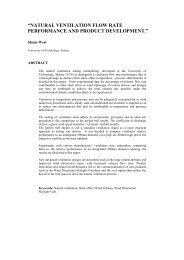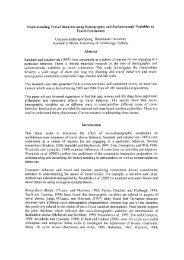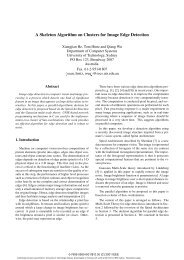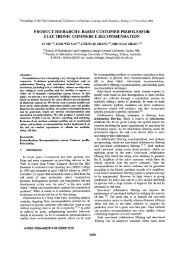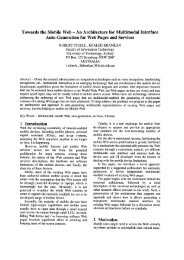Handover mechanisms in next generation heterogeneous wireless ...
Handover mechanisms in next generation heterogeneous wireless ...
Handover mechanisms in next generation heterogeneous wireless ...
You also want an ePaper? Increase the reach of your titles
YUMPU automatically turns print PDFs into web optimized ePapers that Google loves.
SECURITY FOR HANDOVER ACROSS HETEROGENEOUS WIRELESS NETWORKS<br />
scope of this thesis. If the authentication is successful, some key<strong>in</strong>g materials such as<br />
Pairwise Master Key (PMK) will be delivered to the authenticator from the<br />
authentication server.<br />
A four-way handshake follows the 802.1X EAP authentication to negotiate the pairwise<br />
cipher suites for the local transmission to the AP. The authenticator issues an<br />
Authenticator Nounce (ANounce) <strong>in</strong> an EAPOL-Key message sent to the supplicant.<br />
The ANounce is essentially a random or pseudo-random value. After receiv<strong>in</strong>g the<br />
EAPOL-Key, the supplicant generates a Supplicant Nounce (SNounce). By us<strong>in</strong>g a<br />
Pseudo-Random Function (PRF) algorithm with the ANounce, SNounce, PMK, and<br />
other <strong>in</strong>formation as <strong>in</strong>puts, the supplicant derives a Pairwise Transient Key (PTK). The<br />
supplicant then sends an EAPOL-Key message conta<strong>in</strong><strong>in</strong>g the SNounce and Message<br />
Integrity Code (MIC) (Note: MIC is a cryptographic digest used to provide <strong>in</strong>tegrity<br />
service.) back to the authenticator. The authenticator uses the same PRF algorithm to<br />
derive the PTK. The PTK is a session key shared between the supplicant and the<br />
authenticator. Later, the authenticator can start the group key handshake for configur<strong>in</strong>g<br />
a Group Temporal Key (GTK) on the supplicant to protect the broadcast/multicast<br />
messages.<br />
- 42 -







